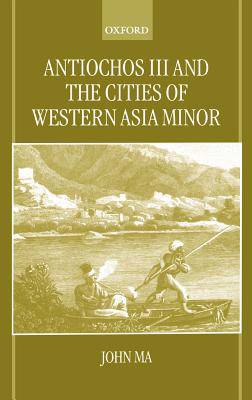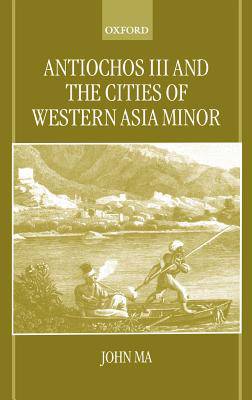
- Afhalen na 1 uur in een winkel met voorraad
- Gratis thuislevering in België vanaf € 30
- Ruim aanbod met 7 miljoen producten
- Afhalen na 1 uur in een winkel met voorraad
- Gratis thuislevering in België vanaf € 30
- Ruim aanbod met 7 miljoen producten
Zoeken
Omschrijving
This work examines a test case for the relationship between the polis and the Hellenistic empire focusing specifically on the interaction between Antiochus III and the cities of Western Asia Minor (226-188 BC). Such a study is possible thanks to a rich epigraphical documentation which has been reproduced extensively and translated in an appendix to this book. Dr Ma approaches this material from a variety of angles: narrative history, structural analyses of imperial power, and analyses of the functions played by language and stereotype in the interaction between rulers and ruled. The result is to further a nuanced appreciation of the relation between the Hellenistic king and the Hellenistic polis by drawing attention to the power of the Hellenistic empires, to the capacity of political language to modify power relations, and to the efforts of the Hellenistic polis to preserve its sense of identity and civic pride, if not its political independence.
Specificaties
Betrokkenen
- Auteur(s):
- Uitgeverij:
Inhoud
- Aantal bladzijden:
- 424
- Taal:
- Engels
Eigenschappen
- Productcode (EAN):
- 9780198152194
- Verschijningsdatum:
- 25/05/2000
- Uitvoering:
- Hardcover
- Formaat:
- Genaaid
- Afmetingen:
- 156 mm x 234 mm
- Gewicht:
- 766 g

Alleen bij Standaard Boekhandel
+ 902 punten op je klantenkaart van Standaard Boekhandel
Beoordelingen
We publiceren alleen reviews die voldoen aan de voorwaarden voor reviews. Bekijk onze voorwaarden voor reviews.







